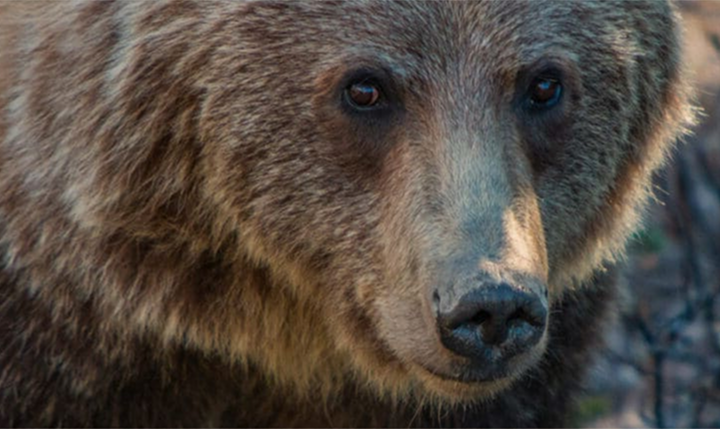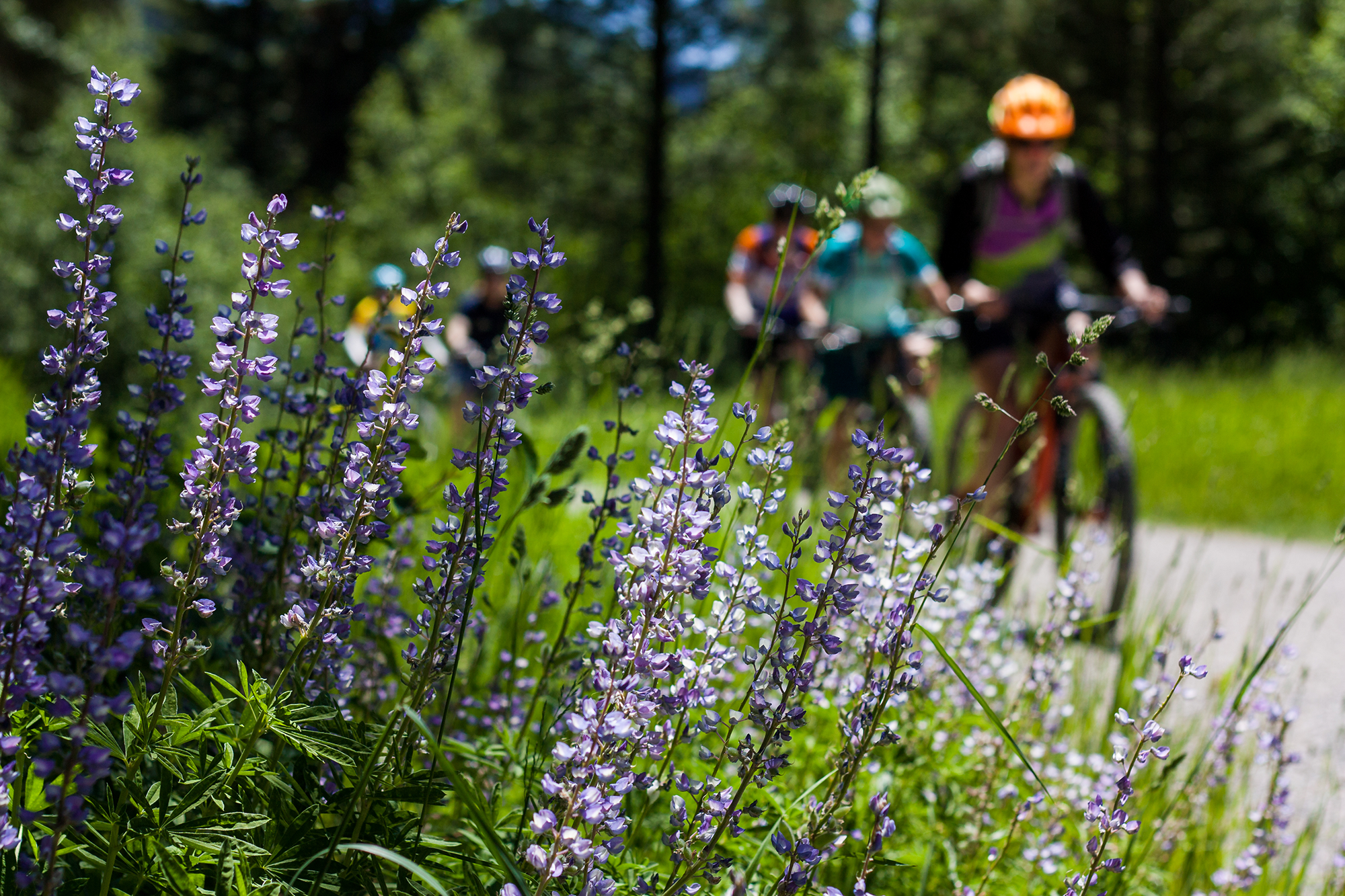Nature should be a safe space for all. We need to do the work to make it so.
People and wildlife face different barriers in their lifetimes.
Wildlife species that rely on movement corridors, such as in the Yellowstone to Yukon region, are faced with roads, railways, houses, fences and other human development. This makes it more challenging to access habitat and for their populations to stay connected.
Since Y2Y began its conservation journey in 1993, we have worked to increase awareness about those barriers, and supported many partners’ on-the-ground work to help keep animals moving. Advocating for more wildlife crossing structures and fencing, providing education on or tools to help wildlife and people share space, and doing research that supports better policies for wildlife movement, are some of the ways we do this.
Humans can also experience barriers in many aspects of life. Nature is inherently part of us all; but not everyone experiences, or can experience, that connection in the same way. People’s unique lived experiences, as well as physical, financial, societal and mental barriers can impact accessibility, which contribute to whether or not people feel comfortable or safe in certain spaces — such as in the outdoors, or participating in different forms of recreation.
Equitable access to nature and the outdoors
Nature should be a safe space for all; but we need to do the work to make it so. Working toward inclusivity, representation, equality, and reconciliation are all important if we want to make the world a better place, both in conservation and in general.
Access to nature does not mean unlimited access to resources or wild spaces — it’s important we maintain safe and intact spaces for wildlife. However, it does mean that the ability to access nature and the outdoors is equitable.
Access to nature does not mean unlimited access to resources or wild spaces — it’s important we maintain safe and intact spaces for wildlife. However, it does mean that the ability to access nature and the outdoors is equitable.
Dr. Devin Holterman is a social scientist. He studies the “human dimensions” of conservation as a postdoctoral fellow with Y2Y and the University of British Columbia. He says that conservation has a history of working for some people and not working for others.
“As we confront the rapid decline in biodiversity, conservation organizations can work more towards ensuring that everyone can enjoy nature and its endless benefits, things such as fresh air and clean water, and recreational and cultural activities, in ways that are free from discrimination,” says Devin. “This is not only the right thing to do, but it will also make the solutions to biodiversity loss more durable.”
Recognizing and celebrating our uniqueness
Another important part of making conservation and spaces in nature more inclusive is celebrating the fact that, like other animals, we all move through the world in our own unique and beautiful ways.
That’s exactly why in 2021, Y2Y partnered up with Edmonton, Alberta-based content creator Alexis Hillyard. She runs a popular YouTube channel called “Stump Kitchen” that’s all about celebrating diverse bodies, vegan and gluten-free cooking, and raising awareness on accessibility.

Alexis was born with a limb difference, which she calls her “stump.” Many of her videos aim to inspire others with limb differences to try new things, even if it means having to go about it a bit differently than “others.”
When some of Y2Y’s staff first met with her, Alexis spoke about how the wildlife crossings that keep wildlife connected are akin to “building bridges” for humans — especially when it comes to accessibility and inclusivity. There was an immediate affinity between Y2Y’s work and what Alexis stands for.
An interview with Y2Y and Alexis Hillyard with ‘Stump Kitchen’
In an interview with Y2Y, Alexis shares some thoughts on what it means to create safe spaces for all:
Y2Y: Why do you think connectivity matters for both humans and wildlife?
Alexis: We all come from nature. The more that we respect and cherish the interconnectedness of all living beings, the more beautiful and sustainable our existence can be together. We are social beings and meant to be connected, and when we are able to be in a community and more connected with each other and nature, that’s when we can thrive. Animals, plants, and humans!
Y2Y: What does ‘getting out in nature’ mean to you?
Alexis: Going for walks in the creek valley by my house, having a campfire in my backyard, going for canoe trips with my family on the North Saskatchewan River, and gardening with my toddler in our backyard.
Y2Y: The tagline on your YouTube channel is about “celebrating all the beautiful ways people move through the world.” Why is that important to you?
Oftentimes we forget that so many people in the world have bodies that break the boundaries of what western culture considers ‘normal.’ Disabled bodies, for example, are often forgotten or overlooked in building plans, policies and representation in the media. By highlighting and celebrating every body, we can create “space” in the world for us to all live the best life possible.
Y2Y: Why did you decide to partner with Y2Y?
Alexis: I have a deep respect for animals and nature. Y2Y works to connect and protect landscapes in a part of the world that is very dear to my heart — the headwaters of the North Saskatchewan River, which is the source of drinking water for Edmonton and many others downstream. I also think there’s a lot of negative events going on in the world right now. Spending time in nature can be a beautifully uplifting experience for one’s heart.
Y2Y: Do you have any experiences you’d like to share around a moment in nature that is significant to you?
Alexis: A few years ago, I was going through a really difficult personal time with my mental health. I had just moved into a new apartment, and one day decided to explore the neighborhood on a walk. All I could hear was the beautiful birdsong — chickadees, sparrows, the blue jays, finches, merlins, robins… It felt like they were welcoming me to the neighborhood and reminding me that everything was going to be okay. It was one of the most special and grounding experiences I’ve ever had. Plus, I didn’t have to go far to get this experience — only a block away from home!
Y2Y: What do you hope others consider in terms of providing better accessibility to folks with limb differences?
Alexis: I think the main thing is changing our mindsets. This means not assuming that people can’t do something because of a disability; but instead, taking the time to wonder how someone might do something, and letting them express their own unique ways of existing before jumping in and trying to “fix” it. I believe we also need to start changing the narrative of ‘disability is bad’ to ‘disability is another beautiful way of existing.’
More information
- Read more about Alexis and our partnership together.
- Subscribe to Alexis’ YouTube channel.



